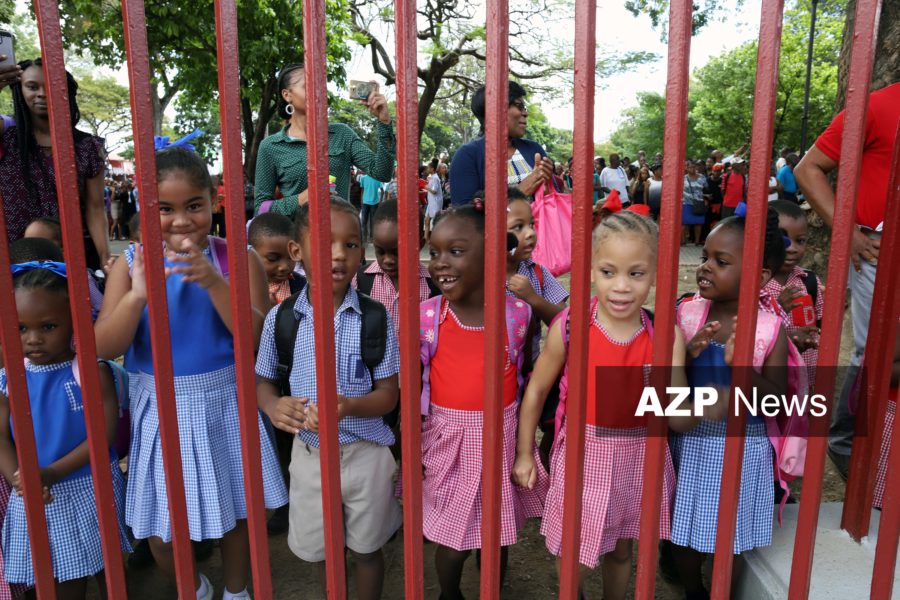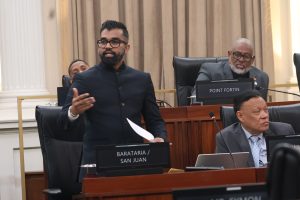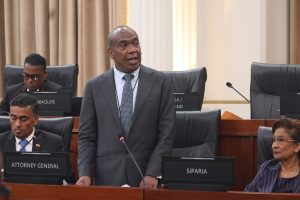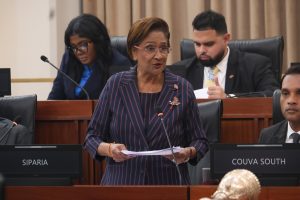‘There is a need to bridge the generation gap and ensure that the mature, rational and so-called “old-fashioned” values, traditional advice and wisdom from the elders would not fall on deaf ears’

THE youths in the Caribbean region and the diaspora need to be instilled with optimism to take full advantage of the available opportunities.
However, in 2022, the harsh realities of limited markets result in many of their hopes being dashed. The lack of job opportunities, racism and religious discrimination have also affected young Caribbean citizens.
In the 21st century, Caribbean societies are in a perpetual state of pessimism in which dreams fail to materialise and political promises are regularly broken. If Caribbean unity is to be achieved, Caribbean youths must initially demonstrate loyalty and patriotism to the region.
Young adults need to envision a united Caribbean society in which they are acknowledged and recognized for making substantial contributions. Our young voices are either being muffled or shouting in the wilderness for attention. Too many of our misguided youth spend their lives chasing fantasies and their potential remains largely untapped and wasted.

There is a dire need for recognition and praise of young visionaries. Furthermore, the promotion of positive role models is badly needed for this generation to eliminate some of the social problems as poverty, crime, drug abuse, pollution, street children, sexually transmitted diseases and gender-based violence.
Within schools, the culture of indiscipline is widespread. Students are involved in fights, guilty of bullying, disruption of classes, absenteeism and disrespect for teachers.
Some students are guilty of threatening or verbally abusing teachers in secondary schools. There was a public outcry that occurred in 2013, in Barbados, with the discovery of students participating in open sex acts. Likewise, in T&T, there was a high incidence of school violence in secondary schools. These were not isolated incidents in the region. Such problems point to an abuse of freedom and a breakdown in family life and morals in Caribbean society.
There is a need to bridge the generation gap and ensure that the mature, rational and so-called ‘old-fashioned’ values, traditional advice and wisdom from the elders would not fall on deaf ears.

This shaky relationship between the young and old creates unnecessary fragmentation in our Caribbean society.
Differences in opinion, ideas, fashion, lifestyle, music, culture and social activities must be appreciated and tolerated by all age groups. No longer should youth be stereotyped as being immature and rash because in our fast-paced society, the relationships between parents and children, young adults and their peers are rapidly changing.
For too long the youth have been scapegoats for numerous Caribbean problems and there is now an urgency for these issues to be addressed by the labour leaders, teachers, parents, politicians, social workers and religious leaders.
Even though there are periodic youth meetings linking the various islands there is need for a vibrant association of young minds willing to make decisions and take action on issues affecting the region and our future. How many countries have outspoken youth representatives in its councils or Parliament? How many governments in the region turn to young people for answers? There is a need to gradually expose more of our young people to the administration of their region. Local governments and regional bodies, such as CARICOM must provide moral and financial support for non-governmental organizations that are working with our youths. These institutional bodies must prepare young minds to survive and face reality amidst limitations in a developing society.
If the youths are ignored and marginalized, this ultimately breeds a deviant subculture which hampers the mission of Caribbean unity. Resources need to be available for young entrepreneurs and innovators. Youth-friendly programs are needed in slums and rural areas. Unless such policies are implemented there will always exist a brain drain and an exodus of frustrated talent seeking recognition or employment abroad. Young men and women must understand that their mistakes and stumbling are part of a larger learning experience in life.
The future of Caribbean society and the state of unity rests largely upon the dreams and visions of our youths. And unless they are properly nurtured, guided and groomed, the divisions and complacency which challenged us in the twentieth century will persist for another generation.
Dr Jereome Teelucksingh is a recipient of the Humming Bird (Gold) Medal for Education and Volunteerism. He is attached to the Department of History at the University of the West Indies at St Augustine. He has published books, chapters and journal articles on the Caribbean diaspora, masculinity, culture, politics, ethnicity and religion. Also, he has produced a documentary – Brown Lives Matter and presented papers at academic conferences.
See other articles by Dr Jerome Teelucksingh:
Rethinking Identities in Caribbean, Latin America
November 19: All Inclusive International Men’s Day
Should International Agencies be Blamed for Unemployment
A Need to Observe Word Unemployment Day
An Ideology for the Trade Union Movement
The Man who Couldn’t be Prime Minister
Social Outburst vs Social Revolution
Challenges of the Men’s Movement
If George Floyd was Denied Parole
The Meaning of Indian Arrival Day in T&T
International Men’s Day – A Way of Life
Wounds that cause school violence
May Day: A Time for Solidarity, Strength
Who Coined the Term ‘Black Power’
![]()













